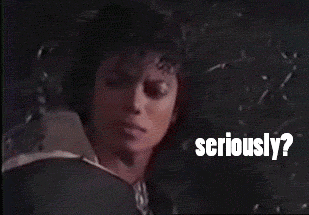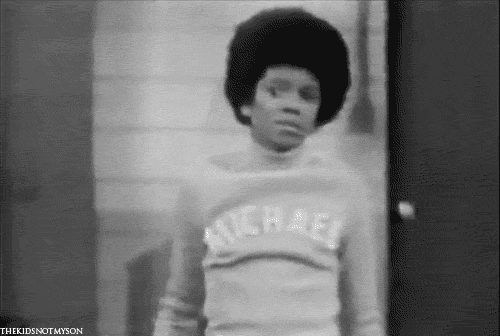<header id="content-header"><hgroup id="titles">Here is article about the copyright reverting back
The Terminator: Rights Reversion and Musicians
</hgroup></header>
Let's get out our time machine and set the coordinates for 2013. Why that date? Because that's when a lot of creators will see copyrights that they signed away in 1978 revert back to them.
This is a big deal for musicians and songwriters who decades ago assigned their rights to a label or a publisher. With their songs back under their control, artists could license them directly to TV and movies, re-release albums on their own imprints, or even re-transfer their stuff to a label or publisher in a more lucrative deal.
All of this is made possible by the
1976 Copyright Act, which went into effect in 1978. Under the 35-year reversion terms of the 1976 Act, copyrights made after Jan. 1, 1978 are eligible to once again become the creator's property. The original owner still has to file termination notices; word is that some big name acts like
the Eagles are already prepping to do so.
But "termination of transfer" is not without it's tricky legal issues. This is, after all, the music industry we're talking about here.
Keep in mind that music has
two copyrights. One is for the underlying composition (like the notes on paper), which is originally the property of the songwriter, who may in turn transfer the rights to a publisher. The other copyright is for the sound recording — the performance captured on tape (or hard drive, as is often the case these days).
The sound recording is the property of the performers who laid down the tracks. That is, until they transfer the rights to a record label in exchange for financing the recording, manufacturing and distributing the work, as well as marketing and promotion.
This raises some questions, many of which need to be sorted out by the musicians themselves. Chief among them: who is considered the "author" of the work? It's easy to imagine infighting between band members who cut albums decades ago under freewheeling circumstances. And some may question whether a recording made while under a label contract should even revert at all. Record company lawyers might argue that the music was actually a "work for hire," and thereby exempt from termination.
On the songwriting and publishing side, it's even more complicated. The law says that copyrights created after Jan. 1, 1978 will terminate after 35 years. But if there's a publishing arrangement involved, the copyright will revert 35 years
after the date of publication. Meaning, if you wrote a song under a so-called "songwriting agreement," there's some question as to exactly when your copyright will revert back to you.
Picture it like this: you're a songwriter who entered an agreement with a publisher to assign your copyrights for a set period of time in exchange for an advance. Let's say this agreement was in place from 1980 — 1985. You wrote a big hit in 1984. Does the copyright revert back to you in 2015, 35 years after you entered the agreement, or in 2019, 35 years after you wrote it? (Hat tip to to copyright attorney
Ben Sheffner whose recent
Billboard Op-Ed provided this example. We'd link to it, but it's behind a pay wall.)
Another issue is a so called "gap" in the termination clause. Here's a particular but relevant thought exercise: you're a songwriter who entered an exclusive songwriting agreement that covered a term from '75 to '80. If you wrote a tune in 1979, does the copyright revert to you 35 years later? If you signed a songwriting agreement, it might not. In fact, it could be subject to the original 56-year termination provision outlined in the 1909 Copyright Act.
Meaning that, even if you wrote the song after the new Act went into effect in 1978, your termination could still be subject to the 1909 rules because you entered your songwriting arrangement in 1975 — before the '76 Act was even hatched. Kind of like
John Connor from
The Terminator sent his own father back in time to conceive him. OK, not quite. But it's a similar mind@#$%.
You might think this copyright craziness is purely hypothetical, but there are real-world songwriters who will be potentially affected. One such artist is country legend
Charlie Daniels. You know the song "Devil Went Down to Georgia"? Well, Daniels wrote this song under an agreement that began in in 1976, even though it didn't get "published" until 1979. When does his copyright revert back to him, 2014 or 2032? Daniels would probably prefer the former.
FMC is looking closely at this issue, which is certain to be a big deal for musicians and songwriters as more and more copyrights reach their termination date. We'll be sure to report back on any developments. Until then,
hasta la vista, babies.
http://futureofmusic.org/blog/2010/04/21/terminator-rights-reversion-and-musicians
comment on the page
never knew there were two aspects of copyright in regards to music. One often hears about how artists and record companies are at odds over master copies, catalogs, and the like. The expiration of previous agreements with the 35 year clause of the 1976 Copyright Act will likely create more legal battles.
Unless you are a
copyright infringement attorney, the complexity of the different situations will be many. Given the gray area described in the article, their looks to be issues that will arise under both the written work of songwriters as well as performance copyrights(especially those artists who relied on record companies). As the years 2013-2018 draw near, it will be interesting to see what artists attempt to regain those copyrights they lost, and what they do with them if retained.


